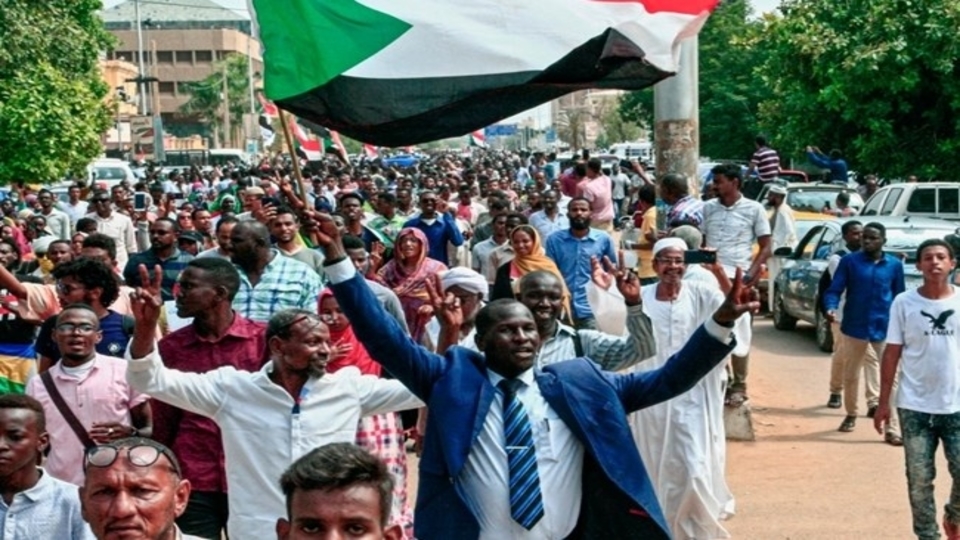In what was the first mass demonstration since the formation of the transitional government in Sudan, thousands took to the streets on September 12 to demand that the country’s Sovereignty Council remove the current chief justice and attorney general. The chief justice and attorney general were appointed by the military junta and are perceived to have close ties with the regime of ousted president Omar al-Bashir.
The protesters demanded the appointment of jurists of independence and integrity so they can try those accused of committing human rights atrocities against protesters.
“The people want a new chief justice”, “We demand justice for the martyrs”, “Blood for blood, we won’t accept blood money” – these were the slogans raised by the demonstrators who marched towards the presidential palace in the capital city of Khartoum.
The protesters faced barricades 200 metres from the palace, but they broke through the barbed wire fence and continued forward. The police then attempted to disperse the protesters using tear gas.
“We condemn in the strongest words the use of tear gas on the honorable rebels because freedom of expression is a right set out in the document that defined the tasks of the transition period. We confirm that the issue of the appointment of the chief of the judiciary and the attorney-general will be watched from the street,” said the Sudanese Professionals Association (SPA) in a statement.
The SPA, which has been at the forefront of the mass-demonstrations, had given the call for this protest with the backing of the Sudanese Communist Party (SCP). Apart from the capital city, demonstrations were also held in cities and towns of other States, including Sinar, Kassala and Atbara – the railway town where the mass demonstrations against al-Bashir first broke out in December.
As per the power-sharing agreement reached between the protest group and the military junta which led to the formation of the transitional government, its highest body, the sovereignty council, soon after its formation, should have appointed a new chief justice and general attorney.
The nominations for these posts were to be made by the Declaration of Freedom and Change Forces (DFCF) – an umbrella group of opposition political parties and trade unions which together represented the protest movement.
While the DFCF has nominated two jurists for this post, the Sovereignty Council, which was formed on August 21, has not yet made the appointments. This council, which is the highest body in the transitional government, has 11 members.
Five of these members were appointed by the DFCF and five by the military junta which had seized power after being forced by mass-demonstrations to remove Omar al-Bashir from presidency in April. The remaining one member is a neutral appointee accepted by both sides.
General Abdel Fattah al-Burhan, who headed the military junta, is one the military appointees to the sovereignty council. For the first 21 of the 39 months long transition period, he will be the head of this council and the president of the country. General Mohammed Hamdan Dagalo, head of the notorious militia called the Rapid Support Forces (RSF) which committed a massacre of more than a hundred protesters in June 3, is also a member of this council.
All the council’s members are granted immunity from prosecution as per the power-sharing agreement. This immunity can only be lifted by the legislative council which is scheduled to be formed only in November.





